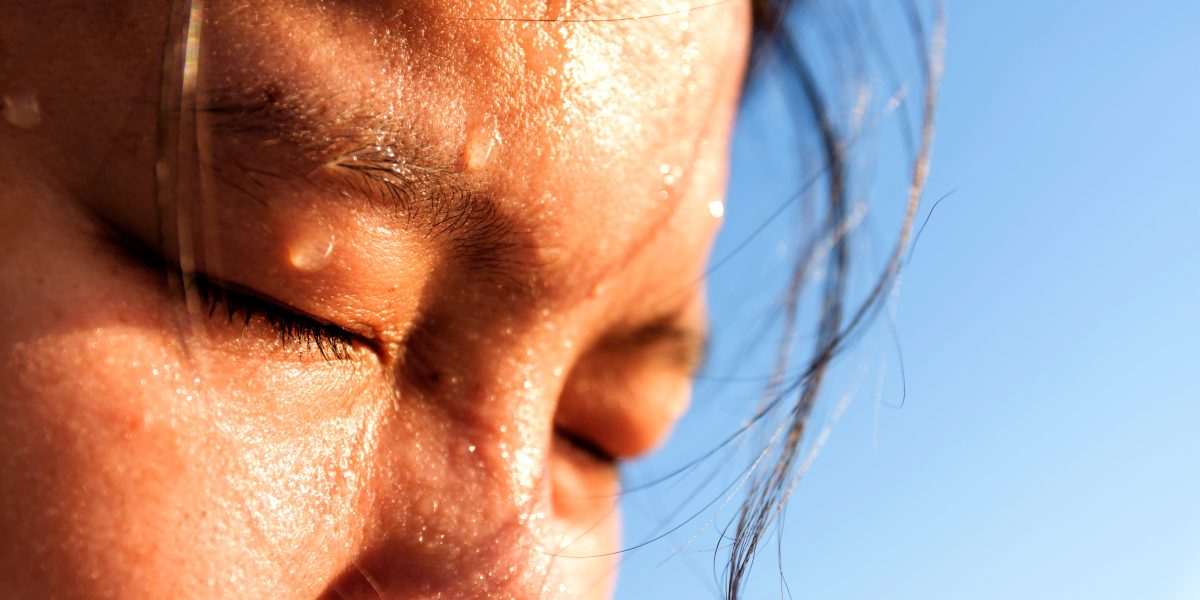So you just got Botox. That means you—and your bank account—may be wondering what you can do to make sure your results last as long as possible. After all, you don’t want to part with your hard-earned cash any quicker than you have to for another touch-up, right?
If you’ve been googling what you can do to stop it from wearing off too early, you may have stumbled upon a surprising tip: Limit your exercise. One idea floating around the internet is that workouts—particularly intense ones like HIIT, CrossFit, or running—can make the effects of Botox wane quicker. But is there any truth to that? Here’s what we found out.
Does exercise affect how long Botox results last?
In a Reddit thread, some exercisers shared that hard workouts made their injections fade fast. “I work out almost every day, sometimes more than once,” one person wrote, “and my Botox doesn’t last for sh*t.” Another shared that their Botox and lip filler wore off earlier than expected when they were exercising hard and often, while a separate commenter, who does CrossFit five to six times a week, mentioned their doctor warned them that frequency might quickly minimize the effects of the treatment.
This is all anecdotal, of course, and there’s not a whole lot of objective research showing a definitive link between hard workouts and less staying power for Botox. However, a small study of 60 women, recently published in the journal Toxins, concluded that a lot of physical activity does seem to hinder its durability. Over 90 days, women who received the injections and reported low levels of exercise (no actual workouts) showed less activity in their facial muscles and more lasting improvement in their forehead and eyebrow lines than women who reported moderate or high levels of movement (either three or six days of CrossFit per week).
One hypothesis for this link? It may boil down to metabolism, or the rate at which your body breaks substances down to produce energy. The theory goes like this: Exercise—especially intense forms like running—revs your body up. The higher your metabolic rate, the faster your body can theoretically break down any chemical, allowing it to dissipate from your system more readily, Annie Chiu, MD, a board-certified cosmetic dermatologist in Redondo Beach, California, tells SELF. And the same may apply to neuromodulators like Botox (as well as to other injectables like facial fillers).
Simply elevating your heart rate—which naturally happens during exercise—may also cause your body to metabolize Botox more quickly, she adds. Another theory is that intense physical activity may cause Botox to detach from your muscle receptors faster, thus weakening its durability, says Dr. Chiu. It could also be that tough workouts lead you to repeatedly activate your facial muscles—think: that “just one more rep” grimace—potentially causing them to override the effects of the treatment faster, she explains.
The caveat is that there is no irrefutable evidence that exercise definitely affects how long Botox results last. Even in the study above, it’s possible other factors were at play to explain the results. For instance, the authors point out that before Botox injections, the low physical activity group had less severe wrinkles than women who exercised more. Yet they all got the same dosage, a fact that could have swayed the results. “More studies are needed before any conclusions can be drawn,” Dr. Chiu says. In the meantime, she adds, the data we do have should simply be viewed as “suggestive.”
So what does this mean if you notice your Botox isn’t lasting as long as you’d like?
Botox tends to last three to five months—though the exact timing is super individualized. Perhaps the biggest factor that affects the duration of your results is genetics, says Dr. Chiu. Some people have genes that allow them to break down the medication more quickly than others, or have muscle receptors that don’t allow Botox to bind as strongly to them as someone else’s. And some folks just have a higher resting metabolic rate, which means their bodies will break down the medication more quickly, Dr. Chiu explains.
